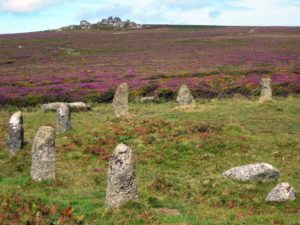Support us from £3/month
We deal with almost 1000 cases a year assisting communities, groups and individuals in protecting their local spaces and paths in all parts of England and Wales. Can you help us by joining as a member?
We have criticised as biased Defra’s announcement today (9 January) that it will bring into effect only part of the law for updating the common-land registers, to favour landowners against the public interest.
The environment ministers Lord de Mauley and Dan Rogerson have said that the government will implement part 1 of the Commons Act 2006 fully in Cumbria and North Yorkshire. In the rest of England it will be implemented only partially and unfairly, enabling landowners to remove commons from the registers without the balancing provision enabling the public to add land which was wrongly excluded. Over seven years after royal assent, the law has so far only been fully implemented in seven pioneer authorities.
Full implementation of the provision has the support of a wide range of organisations because, without an up-to-date record, it is difficult for commons to benefit from proper management to protect their value for nature conservation and public access, and the livelihoods of those who depend on them as grazing land. There is a right to walk on nearly all the commons but if they are not recorded on the register that right may not be available to the public. There may also be rights to ride.
Says our case officer Nicola Hodgson: ‘We are dismayed that government favours landowners at the expense of the public. The whole purpose of this part of the Commons Act was to provide a balanced package for all interests.’
In presenting the Commons Bill in the House of Lords on 20 July 2005, Lord Bach (then Defra Parliamentary Under-Secretary of State) said:
Schedule 1 [of the Bill] enables the rectification of certain mistakes in the commons registers that arose out of misguided or mistaken applications under [the Commons Registration Act 1965], or where applications were rejected because of a mistaken understanding of the law at that time. We believe that the Bill presents a balance in carefully defining limited criteria, both for the de-registration of registered land, and for the registration of new land.
Nicola continues: ‘That balance has been abandoned by the government’s determination only to allow landowners to achieve changes to the register.
‘The government gives as its excuse lack of resources. It would be much fairer to implement the provisions fully in a few counties at a time, rather than favour landowners over the public.
‘We welcome the implementation in Cumbria and North Yorkshire, which will be beneficial to the public as well as landowners, but our delight is marred by the partial and biased implementation elsewhere.
‘However, this will not take effect until October so we have an opportunity to influence the ministers,’ Nicola concludes.

